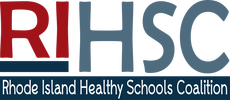adolescent sexual health:
SCHOOL CLIMATE & CONNECTEDNESS

A positive social and emotional school climate is conducive to effective teaching and learning. The school climate can affect student engagement in school activities, relationships with other students, staff, family and community. A school environment that is characterized by the absence of discrimination, intimidation, taunting, harassment and bullying can improve student health, encourage positive emotional growth and improve academic performance.
Students are more likely to engage in healthy behaviors and have better academic achievement when they feel connected to school. School connectedness is particularly important for students that might be at increased risk of feeling alienated or isolated from others, including those with disabilities, those who are homeless or students that identify as LBGTQ. Lesbian, gay, bisexual or transgender students sometimes have fewer support resources both at home and in school to draw upon and often experience lower peer support than heterosexual students.
Strong and inclusive school environments include health curricula that reflect the realities of a diverse student body, promotion and encouragement of student voice and development of school and district policies and practices that ensure that everyone feels safe, supported and protected.
Students are more likely to engage in healthy behaviors and have better academic achievement when they feel connected to school. School connectedness is particularly important for students that might be at increased risk of feeling alienated or isolated from others, including those with disabilities, those who are homeless or students that identify as LBGTQ. Lesbian, gay, bisexual or transgender students sometimes have fewer support resources both at home and in school to draw upon and often experience lower peer support than heterosexual students.
Strong and inclusive school environments include health curricula that reflect the realities of a diverse student body, promotion and encouragement of student voice and development of school and district policies and practices that ensure that everyone feels safe, supported and protected.
School Climate: RI Laws & Regulations
- Guide to Preventing Bullying, Teen Dating Violence, and Sexual Violence in Schools (RIDE Policy)
- Policy Statement on Discrimination based on Sexual Orientation and gender Identity/Expression (RIDE Policy)
- Lindsay Ann Burke Act (Dating Violence) (RI General Law)
- Right to a Safe School (RI General Law)
- Basic Education Program (section G-14-12 – Supportive and Nurturing School Community) (RIDE Policy)
- Transgender Policy (RIDE Policy)
- Supportive and Nurturing School Community (section 200-RICR-20-10-1.3.2 A) (RI Basic Education Program)
Improving School Connectedness
- Creating Safe Space for LGBTQ+ Youth: A Toolkit (Advocates for Youth)
- School Connectedness (CDC)
- Fostering School Connectedness: Information for School Districts and Administrators (CDC) provides a step-by-step guide for creating a more welcoming school with a healthy social and emotionally supportive environment.
- Fostering School Connectedness: Information for Teachers and Other Staff (CDC) presents a step-by-step guide for building social and emotional bonding at the classroom level.
- Fostering School Connectedness: Information for Parents and Families (CDC) suggests actions that families can take, at home and at school, to help their children become more connected to their schools
- Best Practices for Effective Schools (Johns Hopkins Urban Health Institute) Strategies for schools to engage and connect with today’s children
Anti-Bullying
- StopBullying.gov (US Department of Health and Human Services) StopBullying.gov provides information from various government agencies on what bullying is, what cyberbullying is, who is at risk, and how you can prevent and respond to bullying.
- Anti-Bullying Policies and Enumeration (CDC) Information brief that explains what enumeration means, and summarizes research on enumerated anti-bullying policies.
- Tutorial: Creating A Safe School Environment for LGBTQ Youth (RIDE) Self-paced online tutorial designed to provide educators with the resources and skills in creating a safe, welcoming, and inclusive learning environment for all students, including those who self-identify as lesbian, gay, bisexual, or transgender.
- Transgender Students in Schools (National School Boards Association) FAQs for Public School Boards and Staff
- What Do You Say to ‘That’s So Gay’ & Other Anti-LGBTQ+ Comments? (National Education Association) Easy tips for teachers to handle LGBTQ+ bullying – pdf handout
